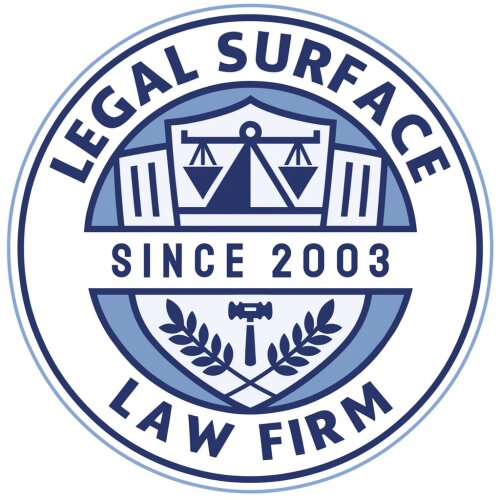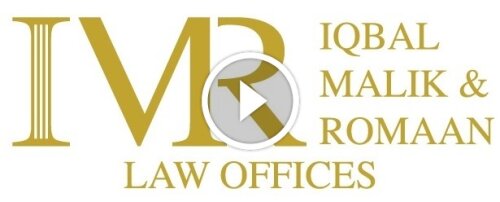Best Education Law Lawyers in Srinagar
Share your needs with us, get contacted by law firms.
Free. Takes 2 min.
List of the best lawyers in Srinagar, India
About Education Law in Srinagar, India
Education Law in Srinagar, India, is a specialized area of legal practice that addresses the rights, responsibilities, and standards relating to educational institutions, students, teachers, and government authorities. As the capital city of Jammu & Kashmir, Srinagar falls under both state-specific statutes and overarching national laws, such as the Right of Children to Free and Compulsory Education Act (RTE Act), 2009. Education law here ensures that basic education is accessible to all, governs school administration, and protects students’ and teachers’ rights, taking into account the region’s unique socio-political context.
Why You May Need a Lawyer
There are several situations where individuals, parents, educational institutions, or staff may require the assistance of an education law lawyer in Srinagar, including:
- Disputes over school admissions, fees, or reservation policies
- Issues related to discrimination or unfair treatment of students or staff
- Matters concerning the safety and welfare of children in schools
- Legal action regarding violation of the RTE Act
- Concerns about curriculum, examination policies, or expulsion
- Employment disputes involving teachers or school employees
- Seeking recognition or affiliation for private or public educational institutions
- Abuse or corporal punishment cases in schools
- Handling board or university examinations fraud or disciplinary actions
Local Laws Overview
Srinagar, as part of the Union Territory of Jammu & Kashmir, operates under both national and region-specific laws. The Right to Education Act, applicable in Jammu & Kashmir since 2020, stands as a cornerstone, mandating free and compulsory education for children aged 6 to 14. Other important laws include university-specific statutes (e.g., Kashmir University Act), laws governing private schools, and anti-discrimination policies. The Jammu and Kashmir Board of School Education (JKBOSE) regulates the curriculum, examination standards, and teacher certifications.
Key areas of focus include:
- Admission procedures and reservation for socially disadvantaged groups
- Fee regulation and prohibition of capitation fees
- Norms for teacher qualifications and recruitment
- Child safety policies and anti-bullying measures in schools
- Mechanisms for addressing grievances with school management and staff
- Implementation of inclusive education for differently-abled children
Frequently Asked Questions
What laws govern education in Srinagar?
Education in Srinagar is governed by national legislation such as the RTE Act, various provisions of the Indian Constitution (notably Article 21A), as well as rules and regulations issued by the Jammu & Kashmir administration, and authorities such as JKBOSE and the Directorate of School Education.
Who can file a complaint about issues in educational institutions?
Parents, students, teachers, or third parties affected by a school or college’s actions can file a complaint. This can be done with the school management, district education officer, JKBOSE, the Directorate of School Education, or in certain cases, the courts.
Is free education available to all children in Srinagar?
Yes, the RTE Act mandates free and compulsory education for children aged 6 to 14 years in Srinagar and throughout India. Government and some aided schools must abide by this law.
Can a private school deny admission based on religion, caste, or disability?
No, private schools in Srinagar cannot deny admission to any child on the grounds of religion, caste, gender, economic background, or disability. Such discrimination is illegal and actionable.
What are the procedures for handling school fee disputes?
If there is a dispute over school fees, parents can raise the matter with the school management first. If unresolved, the issue can be escalated to the local education authority or the consumer forum. Certain fee controls are also stipulated under local rules.
Are there legal protections against corporal punishment in schools?
Yes, both national and regional guidelines strictly prohibit corporal punishment. Complaints should be made to the school management and, if unaddressed, to the education department or law enforcement as necessary.
How are grievances related to curriculum or unfair exams resolved?
Grievances can be reported to the respective educational board (such as JKBOSE for schools), or the governing body of the educational institution. If necessary, a legal remedy may be sought through administrative or judicial bodies.
What should one do in case of harassment or abuse in an educational institution?
Report such incidents to the school authorities immediately. If there is no satisfactory action, complaints can be lodged with the local police, Child Welfare Committee, or the relevant district education authorities.
Is homeschooling allowed under the law in Srinagar?
While the RTE Act encourages institutional schooling, it does not explicitly ban homeschooling. However, legal acceptance and regulatory frameworks are still evolving, and parents opting for homeschooling should consult legal experts to ensure compliance.
How can an institution seek recognition or affiliation in Srinagar?
Institutions must apply to the relevant state education department or board, fulfilling infrastructure and faculty requirements, and adhering to prescribed procedures. Lawyers can assist in ensuring compliance with all statutory and regulatory prerequisites.
Additional Resources
For further guidance and assistance, the following resources can be valuable:
- Jammu and Kashmir Board of School Education (JKBOSE)
- Directorate of School Education, Kashmir
- Ministry of Education, Government of India
- District Education Officer, Srinagar
- Child Welfare Committees
- Legal Services Authorities (for free legal aid)
- National Commission for Protection of Child Rights (NCPCR)
- State Commission for Protection of Child Rights, J&K
Next Steps
If you believe you need legal help regarding an education law issue in Srinagar, consider the following steps:
- Gather relevant documents (admission forms, correspondence, fee receipts, notices, reports)
- Reach out to the concerned institution’s grievance cell or administration to seek a resolution
- If unresolved, approach the District Education Officer or the appropriate regulatory authority
- Consult a lawyer knowledgeable in Srinagar’s education laws for personalized advice and representation
- For urgent cases (abuse/safety), immediately contact law enforcement or child protection agencies
- Utilize legal aid services if you cannot afford a private lawyer
Proper documentation and timely action are crucial. Legal professionals can guide you through administrative procedures, represent your interests in negotiations, or pursue matters in court when required.
Lawzana helps you find the best lawyers and law firms in Srinagar through a curated and pre-screened list of qualified legal professionals. Our platform offers rankings and detailed profiles of attorneys and law firms, allowing you to compare based on practice areas, including Education Law, experience, and client feedback.
Each profile includes a description of the firm's areas of practice, client reviews, team members and partners, year of establishment, spoken languages, office locations, contact information, social media presence, and any published articles or resources. Most firms on our platform speak English and are experienced in both local and international legal matters.
Get a quote from top-rated law firms in Srinagar, India — quickly, securely, and without unnecessary hassle.
Disclaimer:
The information provided on this page is for general informational purposes only and does not constitute legal advice. While we strive to ensure the accuracy and relevance of the content, legal information may change over time, and interpretations of the law can vary. You should always consult with a qualified legal professional for advice specific to your situation.
We disclaim all liability for actions taken or not taken based on the content of this page. If you believe any information is incorrect or outdated, please contact us, and we will review and update it where appropriate.









